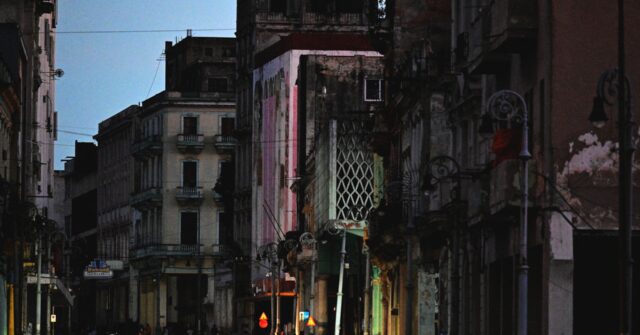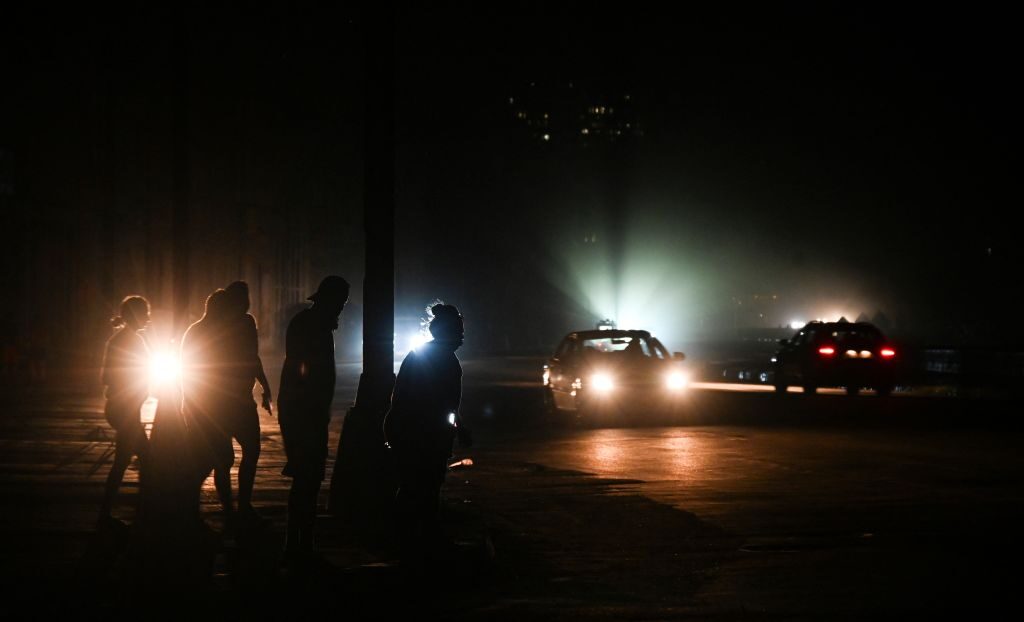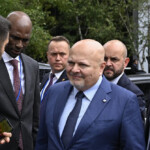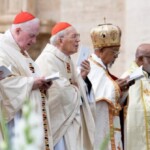The figurehead president of Cuba, Miguel Diaz-Canel, warned on Sunday the communist Castro regime will “not tolerate” protests after the complete collapse of the nation’s ailing power grid over the weekend.
Cuba, which for years has been subject to near-endless blackouts on a daily basis, reached on Monday the fourth day of an ongoing nationwide blackout. Its barely functional power grid collapsed entirely on Friday, leaving almost the whole country without power for the past few days – with the exception of the regime-connected wealthy, who rely on independent power generators for their electricity. Cuban officials reportedly attempted to bring the power grid back online, only for it to collapse again at least four more times throughout the weekend.
The situation caused by the nationwide blackout worsened in eastern Cuba with the landfall of Hurricane Oscar — now weakened to tropical storm status — in the city of Baracoa, Guantanamo, on Sunday.
The Castro regime, which appears to be functioning with little interruption through the blackout, held a meeting of its National Defense Committee on Sunday evening. In the encounter, Díaz-Canel, dressed in military garb, provided an “update” on the developing situation and threatened to repress citizens protesting the communist regime.
“There is all the disposition and all the capacity and all the deployment and scope of the systems that we have organized from the defense councils, from the organizations, from the party, from the government, from the administrations to respond to the population to any concern, as long as it is done in a civilized, organized and disciplined manner,” Díaz-Canel said.
“But we will not accept nor will we allow anyone to act by provoking vandalism and much less disrupting the tranquility of our people, and that is a conviction and that is a principle of our revolution,” he continued.
The dramatic situation prompted Cubans to flock to the streets in several of the country’s towns, including the capital, Havana, to protest the communist regime and demand a solution to the ongoing emergency.
An unnamed Cuban citizen from a Havana neighborhood told the independent outlet 14 y Medio on Sunday that the Castro regime had cut the scarcely functional internet signal “because the people are still here in the street, not even by landline can you call, but the protest is felt everywhere.”
“People go with their faces uncovered, they call on others to play as well, they have been without electricity for three days,” the neighbor added. “A few blocks from there they sang ‘The Internationale’ in the morning. This is a disaster, in one cousin’s block one part has electricity and another part doesn’t.”
14 y Medio reported on Monday morning that Cuban state employees have been ordered to face “any situation” on the streets due to the ongoing nationwide blackout, as well as continuously guard government buildings and immediately report any gathering of people to the police. A Cuban state official who the outlet identified as “Humberto,” a 52-year-old resident of Cienfuegos, stated that he has opted to obey orders despite the doubts he has about them.
“The truth is that if there is a protest I would not know what to do, because deep down I also have many grievances and disagreements with everything that is happening in the country,” the man told 14 y Medio. “I don’t want to lose my job, because at least it guarantees part of my family’s livelihood. I am worried that all this trouble will result in violence that will be controlled by force. Something like that would be very hard for people who, obviously, are tired.”
“Before coming here [his workplace] I had to go to the Pastorita buildings, looking for some rice for my children to eat today. My wife is cooking with charcoal, because we ran out of liquefied gas and we don’t have money to buy it from the resellers,” he explained. “When I was told that I had to take on this guard I stepped forward, but I wonder what I am defending.”
Cubans walk on a street during the third night of a nationwide blackout in Havana October 20, 2024. Cuban President Miguel Diaz-Canel warned Sunday he will act with “rigor” against those who try to disrupt public order, amid a total blackout that has kept the island in darkness for three nights. (YAMIL LAGE/AFP via Getty Images)
Another state official, identified as “Mayra,” told 14 y Medio that she is opposed to standing guard at the government building she works in. The woman did not disclose her exact profession, but stated to be linked to the People’s Power Assembly in Cienfuegos.
“I understand that they are afraid of what might happen, but I did not cause this critical situation, nor do I own the offices. If a protest takes place, I will not do anything to prevent it, because they would be defending many of the criteria I have,” she said. “I know that this position I have taken could cost me dearly in terms of my job, but I will not do anything that goes against my principles.”
“I would not forgive myself for denouncing innocent people who, after being beaten, would go to prison for the sole crime of expressing themselves freely. Of course, when my work gave the orientation, many opportunists accepted the task, as if it were a heroic act. I am not braver than anyone else, but I have dignity,” she asserted.
Díaz-Canel blamed the collapse of the power grid on the U.S. “embargo” on Cuba, which, he claimed, allegedly causes the nation to be unable to be consistently supplied with fuel to operate its rundown power plants.
Cuban Energy Minister Vicente de la O Levy echoed the figurehead president’s claims in remarks given to reporters on Sunday. The minister also claimed the United States was responsible for Cuba’s fuel shortage due to the “embargo.”
“Why don’t we have fuel? Why is the technical condition of our units like this? The main cause is our inability to access the international financial markets to buy fuel as a result of the brutal economic blockade by the United States government,” de la O Levy said.
In reality, the embargo does not affect Cuba’s friendly relations with many of the world’s top fuel suppliers, most prominently Russia. The complete collapse of Cuba’s power grid is the end result of more than six decades of communist mismanagement that have pushed Cuba to the brink of complete ruin.
In addition to the power crisis, the regime has caused severe shortages of food and medicine (which the “embargo” does not block from exporting from America), rampant hunger, poverty, the collapse of Cuba’s garbage collection infrastructure, and several other inhumane living conditions that the Castro regime continues to force its citizens to live through.
Christian K. Caruzo is a Venezuelan writer and documents life under socialism. You can follow him on Twitter here.




